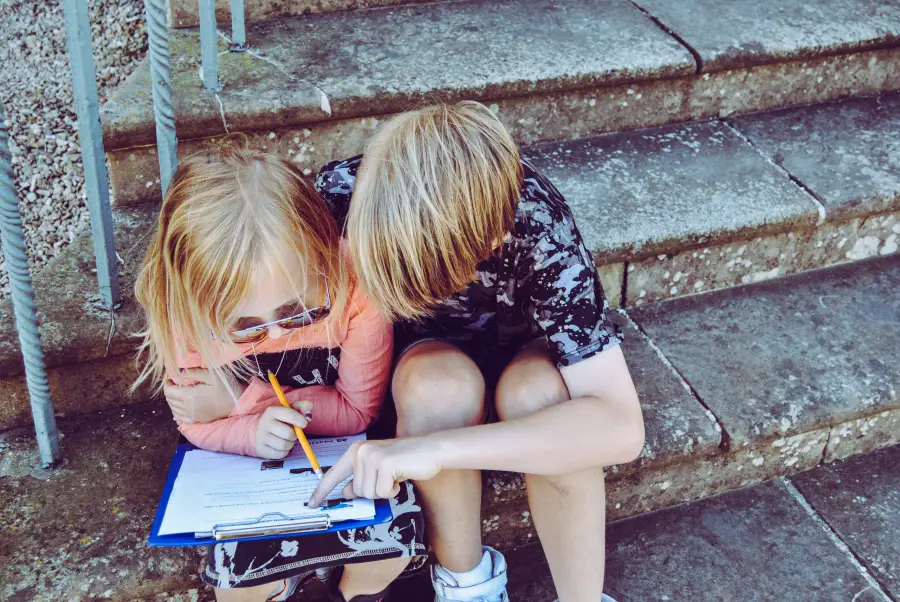Raising a Child with ADHD: Overcoming the Challenges

Parents that find out their child has “Attention Deficit Hyperactive Disorder “(ADHD) will be presented with many challenges in life. Kids with ADHD can’t handle a lot of homework, have messy lockers, have trouble at home doing chores and are generally scattered. In addition, these kids are impulsive which can cause defiance and arguments. They are easily overstimulated and overreact to failure and frustration. These kids also have hypersensitive reactions to stress, which are called fight or flight and this can make it very hard for parents to enforce rules. Parents will have a tough time trying to provide a structure without causing pressure.
Children with ADHD know what to do, they just don’t know where to begin. Parents don’t know when to be firm or when to be patient. Parents also have to cope with believing in the abilities of their child, while protecting them from the dangers of ADHD. There are many difficulties that arise from having children with ADHD but there is no need to worry because there are also many constructive strategies and rewards. Here are some good tips if you are raising a child with ADHD.
Stay Calm
Remember to stay calm because once you lose control, the child’s anger can escalate and the interaction becomes nonproductive. Keep your patience in check and try noticing to see if you have ADHD tendencies that cause you to react that way.
Try avoiding quarrels with your child because it can have only bad consequences. If homework is an issue, you can create a tug of war activity from arguing. Arguing can only delay working on the homework assignments, so diffuse the situation instead of engaging.
Work on your behavior as a parent
Remember that if you do most of the tasks of your child, the less he’ll learn. The key is to give them the support that is needed without taking over their lives.
 Structure without pressure
Structure without pressure
You can use charts for the younger ones and planners for the older kids, and clear rules and routines, especially at bedtime. Structure helps with keeping them more organized with fewer distractions. These kids can’t work in dysfunction so set a regular time for homework and allow certain privileges. Make sure privileges are only granted after the child completes their homework. In addition, work with your child and their teacher to create good and steady homework routines.
Structured time with no pressure means not using ultimatums or unnecessary deadlines and punishments that will only scare them or cause dramatic situations.
Let your kids choose
You can’t teach self-control if you don’t give your child a few choices on how to respond. You should provide enough chances for children to make their own choices. You can offer your child two choices which are called “structured choice” so they can pick themselves. You can use this strategy when you ask your child to clean their room or do their homework. Ask them which one they want to do first.
Use reasonable consequences for rule breaking
You as a parent can ask the child what the consequences should be if they break a rule. This can help kids with ADHD to create commitments they made themselves. Consistency is one of the most important traits of parenting, so when you see that your child behaves positively, that will result in positive consequences and the other way around. Don’t make the mistake of doing it otherwise.
Breaking the rules sometimes is normal
All children, even the most intelligent ones break rules. When this happens, you shouldn’t make it your fault because it happens to every parent. Just don’t make it personal, and act with respect, and consistency.
Advocate for your child when appropriate
You might have to make certain arrangements for your child because of the ADHD, but try to still support your child in growing and cultivating their abilities. An example is using audiobooks, but you still want them to learn fluent reading by giving your child time, a teacher and most importantly – your belief that they will succeed.
 Do not mute a strong-willed child
Do not mute a strong-willed child
Don’t try and turn your spirited child into one that obeys all authority and accepts all that is said without any questions with saying “just because I said so”. Parents should expect that most kids won’t like this and behave in a bad way, and here is where the parents should set the limits. Parents must realize that these kids need ways of expressing their frustrations, but they can still enforce reasonable rules.
Just remember that these kids face a lifetime of challenges and don’t outgrow ADHD. In fact, children that are diagnosed with ADHD most likely will face a lifetime of problems as they age and go on to having additional psychiatric problems. Researchers followed 5, 178 kids that included about 400 who had ADHD. Around 20 percent of the kids with ADHD stayed that way in adulthood. To make matters worse, research has shown that 57 percent of the 400 children with ADHD had additional disorders as adults that included, anxiety, depression and substance abuse. This was compared to 35 percent of the kids without ADHD. This shows that it is crucial for those with ADHD to find a suitable doctor and stick with the program.
ADHD needs to be treated by someone that acts on their condition beyond the scope of just prescribing them the medication. These patients need to be directed to the right ways for helping with their organization, time management and other methods of dealing with their symptoms. This is of great importance for adult patients that have also had ADHD since childhood. These patients can start to suffer from bipolar disorder 1 and 2, borderline personality disorder, psychosis, mania, clinical depression to name a few. The act of impulsive decisions without the right guidance can cause a chain reaction of events that will eventually cause multi complex post-traumatic stress disorder or PTSD. It’s up to both parents to try and set the right limits and boundaries when the kids are young so they may utilize their skills and seek help when they are adults. Parents aren’t always going to be in the lives of these kids because tragedy can strike at any time and these kids could lose a parent. Ongoing psychotherapy is very important throughout your child’s life.






